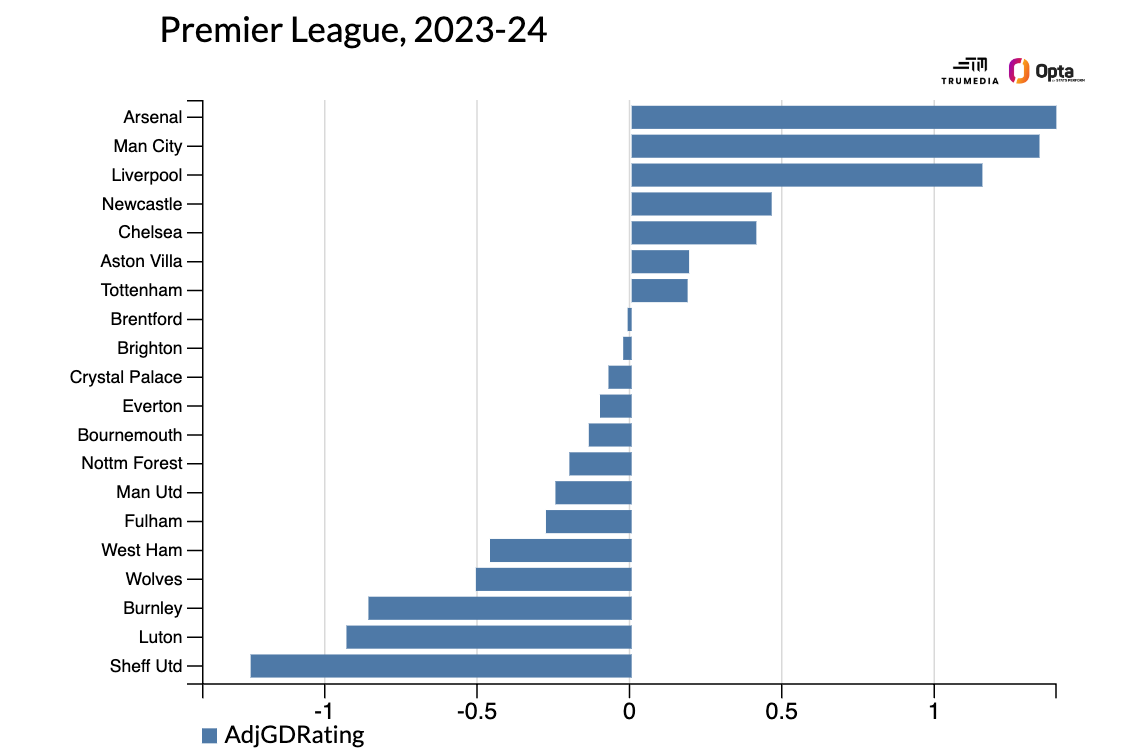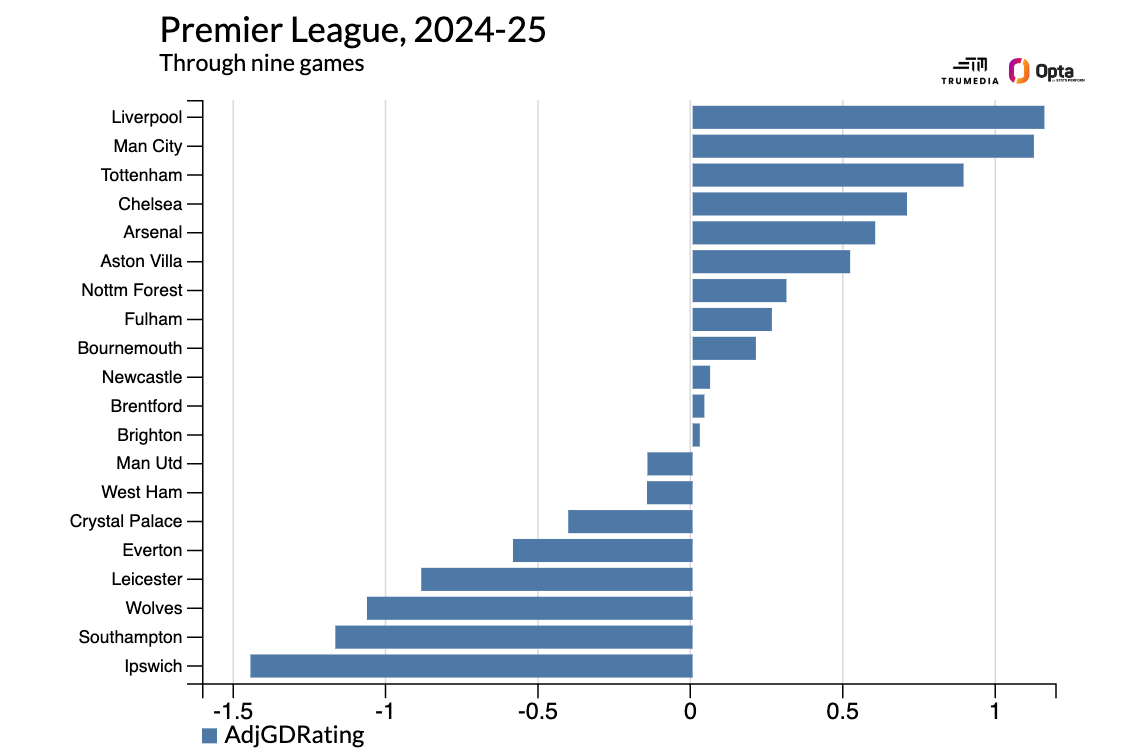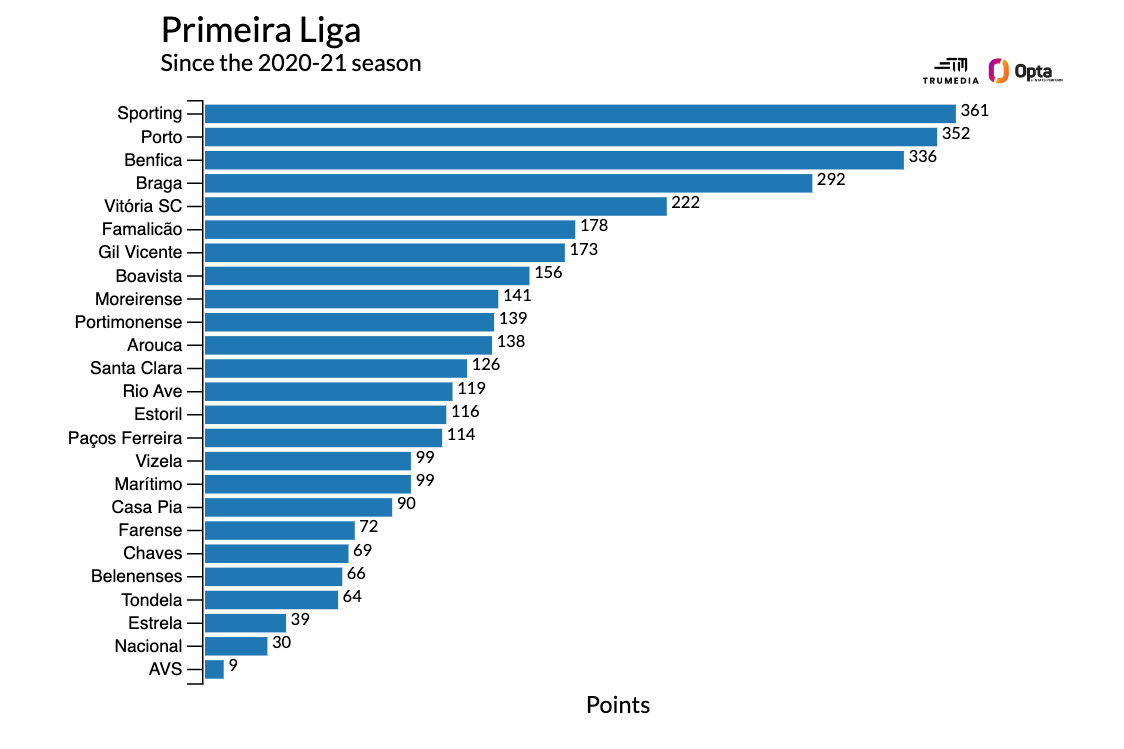That was fast. In the same week that Manchester United finally cut ties with Erik ten Hag, they announced their new manager: 39-year-old former Sporting CP boss Rúben Amorim.
United are paying about $11 million to get Amorim out of his Sporting contract, plus whatever it is they'll pay Amorim in salary, plus added compensation to get some of Amorim's assistants out of their contracts, plus whatever they're paying those assistants, plus the multiple millions of dollars they still owe Ten Hag after they signed him to a contact extension over the summer.
In other words: This coaching change is costing a club a lot of money. It certainly doesn't look great in the face of all of the cost-cutting done by Ineos, United's new football-operations-only owners, over the summer, but, well -- I guess -- Ineos finally do have their guy.
Like we did when Liverpool hired Arne Slot, let's ask ourselves some questions.
So, uh, why did they do it like this?
On the one hand, Man United deserve a little bit of credit: They didn't fire Ten Hag without a plan for his replacement. No, they pretty clearly had Amorim lined up, and the fact that he was willing to join the club must have played a role in why they finally decided to move on from Ten Hag. Managerial moves aren't constrained by transfer windows, so if you're not convinced you have the right coach and a better one becomes available, you should make the move. It's what Liverpool did when they replaced Brendan Rodgers with Jürgen Klopp, and I'd say that decision ended up working out pretty well.
On the other hand, this process is terrible! Amorim, who interviewed for the West Ham job over the summer, was clearly available over the summer. You could've just hired him then and not extended Ten Hag! United were awful last season! Even though they won the FA Cup, almost everyone thought Ten Hag was still done!
I'm digging deep into the recesses of my brain -- a scary place -- to try to find a sound decision-making process that led to this situation and ... I've got nothing.
Amorim's Sporting have been fantastic for a while now, so there's something wrong if (A) United needed to see more from him, and (B) they felt like two-plus months of games satisfied the definition of "more."
There's also something wrong if the club expected more from this Man United team this season under Ten Hag. They finished eighth last season but were lucky to be that high. By a blend of 70% expected goals and 30% goals -- more predictive than either stat by itself -- they were the 14th-best team in the Premier League:

This season, those numbers are slightly better, especially since they've spent a significant amount of time playing down a man:

To be clear, these numbers are still absolutely horrible for one of the richest teams in the world. But ... what did you expect from the same coach who basically did the same thing last season? Was a dubious, VAR-aided injury-time penalty against West Ham really the moment that the United hierarchy finally decided they'd seen enough?
We're looking backward a bit here, but I think it's important to set the stage for the environment Amorim is walking into. Nothing that Ineos has done suggests that the club has finally figured out how to move forward.
OK, so moving forward ... why Amorim?
Mark Ogden and Janusz Michallik agree that it is vital for Rúben Amorim to make a positive start as Manchester United manager.
This one's pretty easy.
I write about it all the time. While there are plenty of other job requirements, they're all secondary to the manager's primary task: get players to perform at a higher level than their collective talent suggests they should. Some coaches actively make their teams worse, most get them to play at the level of their talent, and a select few boost their team's performance over the long haul.
The consultancy 21st Group helps club and national teams find the coaches who do this. To aid in the process, it has created a managerial ranking system that does the following: "Our Overachieving Head Coaches rankings assess nearly 25,000 coaches globally and identify those that have both improved the underlying performance of their teams, and outperformed expectations given the level of spend on the squad."
In the top 10, you'll find names such as Klopp, Slot, Xabi Alonso, Mikel Arteta and Pep Guardiola. But coming into this season, the name at the top of the list was ... Amorim. Per 21st Group's analysis, Amorim has improved the team's underlying performance, improved players already at the club and outperformed his team's wage bill.
Sporting are one of the richest teams in Portugal, but both FC Porto and Benfica typically bring in significantly more revenue than they do. Despite that, here's how each team's points total in the Portuguese first division stacks up since Amorim's first full season with Sporting:

On top of that, Amorim was hired by Sporting after just a few months at his first-ever managerial gig with Braga, whom he led to wins over Benfica, Porto and Sporting. In fact, he beat Sporting twice -- and then they, like United, paid an $11 million fee to hire him. The club hadn't won a league title in 18 years before Amorim's arrival. They've won twice since and are currently perfect in the league this season.
You can't get much better than that, can you?
There aren't too many other contextual red flags either. With Ten Hag, he was significantly older than most coaches are when they get their first jobs. There's nothing wrong with that in a vacuum, but he was not some young, up-and-coming, hot-shot coach; he's older than Guardiola. Plus, the Dutch league hasn't had a high record of translatable success in the Premier League, for coaches or for players.
Portugal, on the other hand, is a high-level managerial factory, and Amorim is, in fact, a young, up-and-coming, hot-shot coach. He'll be the fourth-youngest manager (39 years old) in the league, and two of the guys younger than him (Kieran McKenna; Russell Martin) are managing teams (Ipswich Town; Southampton) that likely won't be in the league next season.
From a high-level perspective -- if we ignore the process that led to him getting the job -- this is the best managerial hire that United have made since Sir Alex Ferguson retired.
Ruben Amorim says his future will be made clear after Sporting CP's match with Estrela on Friday.
All right, so what's the catch? There has to be a catch, right?
The only problem I can really foresee here is that Amorim has a very specific system. Per Opta's data, Amorim has managed 143 matches in the Portuguese league and the Champions League. Here's the number of times he has played a back four and a back three:
- Back four: 0
- Back three: 143
Over the summer, ESPN reported that one of the main reasons that Amorim didn't get a bigger gig (namely, at Liverpool) is that clubs were concerned by his lack of tactical flexibility. Now, I don't think we're looking at a Martin-at-Southampton situation here, where a coach will fail -- and so will his team's performance -- at the altar of "How the Game Should Be Played." Sporting like to press and control possession like any top team, but they're equally adept at creating chances from settled possession or fast attacks into space. In fact, they lead the Portuguese league in both of those categories this season.
Rather, Amorim's commitment to such a specific set of formations really does limit who you can recruit. You need three center-backs who can pass really well since you're likely down numbers in midfield, you need wing-backs, and then you also need attackers who aren't really wingers, but who mainly play in the spaces between the opposing full-backs and center-backs.
These are all types of player that Manchester United can acquire, but they're also mainly ones that Manchester United don't have right now and might not need if Amorim eventually goes the way of Ten Hag.
Can't United just let him sign his best players from Sporting?
Yes, and they absolutely should not do that!
With Ten Hag and his former club Ajax, we've already seen United seemingly turn the recruiting process over to "Yeah, I coached that guy or played against him in the Eredivisie once or twice." It didn't work -- and then the club signed Ten Hag to an extension and signed even more players in that mold this summer. Now they have a roster of players signed to fit whatever Ten Hag's vision was, but those players suddenly have to fit Amorim's specific -- and very different -- vision.
In terms of the current roster, the back three should help out the midfield, which is still quite poor even after the development of Kobbie Mainoo and the signing of former Sporting defensive midfielder Manuel Ugarte. There will be less of an onus on these players to control and dominate matches. I could also see one or two of the team's lesser-used and/or less-effective wingers turning into effective wing-backs.
Jan Åge Fjørtoft speaks about Manchester United's links with Sporting CP manager Rúben Amorim.
On the other end of things, all of United's possession full-backs don't really seem to mesh well with Amorim's previous ideas. Do you really want to spend a ton of money on a young super-prospect center-back like Leny Yoro to stick him in a back three? The fits of Marcus Rashford, Alejandro Garnacho and Bruno Fernandes are all somewhat questionable, too.
But also, none of that really matters. The reality of the situation is that this is a bad team that's not built for the new manager. United have some talented young players, but they're right in the middle of the Premier League in terms of their average age, weighted by minutes played: 26.5. That's basically the same age as Arsenal's squad, so United are basically built to win now but nowhere near being able to win any of the trophies that actually matter. Amorim should not have to win now; he should have to win at some predetermined point far off into the future.
There seem to be two paths forward here. The first would be to sign some of Amorim's former players -- such as 26-year-old striker Viktor Gyökeres -- and then also drop a lot of money on older bigger-name players who will fulfill Amorim's system needs immediately. That might lead to some short-term results but, like we saw with Ten Hag, it gets you nowhere in the long run. In fact, it might even push you further back on your timeline.
The other option is to commit to Amorim's vision, but only do it by signing the kinds of talented young players who could be a part of the next great United team, which realistically won't exist for at least another three seasons. There might be some more short-term pain in that scenario -- a few more seasons outside the top four or five -- but the long-term upside for a team with United's resources that hoards young talent is Premier League and Champions League titles.
That's what everyone at the club wants, but that brings us to a question from me, and not my alter ego: Is anyone at Manchester United patient enough to commit to the only process that might ever get them there?
